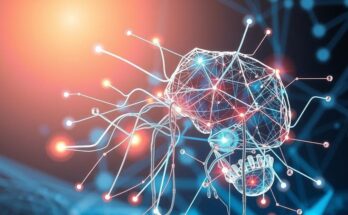In the next five years, AI is set to revolutionize society by speeding up interactions with institutions, enhancing business efficiency, challenging privacy norms, complicating legal frameworks, and promoting human-AI partnerships. Key industries like education, healthcare, finance, and transportation will be drastically transformed, although caution regarding existential risks and missed opportunities remains pertinent.
The imminent future of artificial intelligence paints a panorama of transformation that will seep into the very fabric of our daily lives over the next five years. As AI gallops forth from the pages of science fiction into the realms of practicality, society will witness not just the acceleration of our interactions with institutions, but a complete metamorphosis of how we appreciate privacy, control, and collaboration with technology. Tracing the roots of AI back to its conception reveals a journey from a speculative idea in science fiction to a pivotal force in modern civilization. The hallmark victory of IBM’s Deep Blue over chess champion Garry Kasparov was not merely a game of strategy; it signified an epoch where thinking machines took their first bold steps into our world. As we cross this threshold, fueled by big data and relentless computational prowess, we find AI altering industries and redefining what it means to be human. The tapestry of AI’s impact is already being woven; voice assistants like Alexa and personalized recommendation engines demonstrate the rudimentary yet profound ways AI is embedding itself in our lives. Looking forward, we anticipate an amplified pace of life as businesses and governments leverage AI to make rapid-fire decisions in an effort to navigate our increasingly fast-paced world. Efficiency will reign supreme, as corporations scramble to harness AI to optimize operations or risk being left behind in a rapidly evolving landscape. However, this evolution comes with shadows—questions of privacy loom large as AI systems grow more adept at handling personal data. The delicate dance between innovation and ethical commitment will undoubtedly face intense scrutiny. At the same time, the legal landscape will become more tangled, as regulatory bodies strive to keep pace with these developments, crafting laws that safeguard society while encouraging technological progress. The human-AI relationship seems poised to transform, mirroring our historical narrative about machines. Rather than shun human involvement, the expectation will be to collaborate, creating partnerships that enhance human intelligence rather than supplant it. This principle will help allay fears born of dystopian tales embedded in our culture. Inevitably, certain sectors will feel the AI touch more acutely. Education will undergo seismic changes, with tailor-made learning experiences crafted by AI. In healthcare, diagnostics will see unprecedented accuracy, yet the complexities of privacy and data ownership will also arise. Finance will revolutionize client interactions, and the legal field could see significant reductions in workforce as small teams leverage AI efficiencies. Transportation is set for an exhilarating leap into the age of autonomy, draping our highways with driverless vehicles and beyond. Yet the narrative veers into cautionary waters when discussing the existential risks AI could pose. Ongoing debates stir unease about potential societal control by AI systems—yet, this anxiety may blind society to the genuine opportunities that lie ahead. Underestimating the potential benefits of human-AI collaboration could prevent society from reaping efficiencies and innovations that AI promises to unlock. As we stand on this precipice, the path we choose will resonate through generations.
Artificial intelligence has traveled a tumultuous path from the fringes of fiction to robust reality, catalyzed significantly after the Dartmouth Summer Research Project that first introduced the term in 1956. The evolution of AI has traversed decades, oscillating between periods of hype and genuine technological advancements, such as the landmark win of IBM’s Deep Blue in chess. This pivotal moment marked the birth of AI as a tangible entity shaping our real world. The burgeoning capabilities of AI, especially in recent years, usher in a deluge of applications across various sectors, as AI systems become intricately entwined with our everyday lives. Assessing the complex interplay of AI’s potential merges excitement with requisite caution, shaping a narrative that’s as thrilling as it is sobering.
In conclusion, the next five years of artificial intelligence hold profound implications for the pace of our lives, the essence of privacy, and the collaboration paradigm between humans and machines. As AI technology integrates deeply into various sectors, it will enhance efficiency and effectiveness while also presenting ethical and regulatory challenges. From education to transport, AI’s influence will be monumental, but it demands our mindful engagement to navigate its complexities and seize the opportunities it heralds for humanity. Our stance on the unleashing of AI will dictate not just the trajectory of technology, but the foundational structure of society itself.
Original Source: www.techtarget.com


